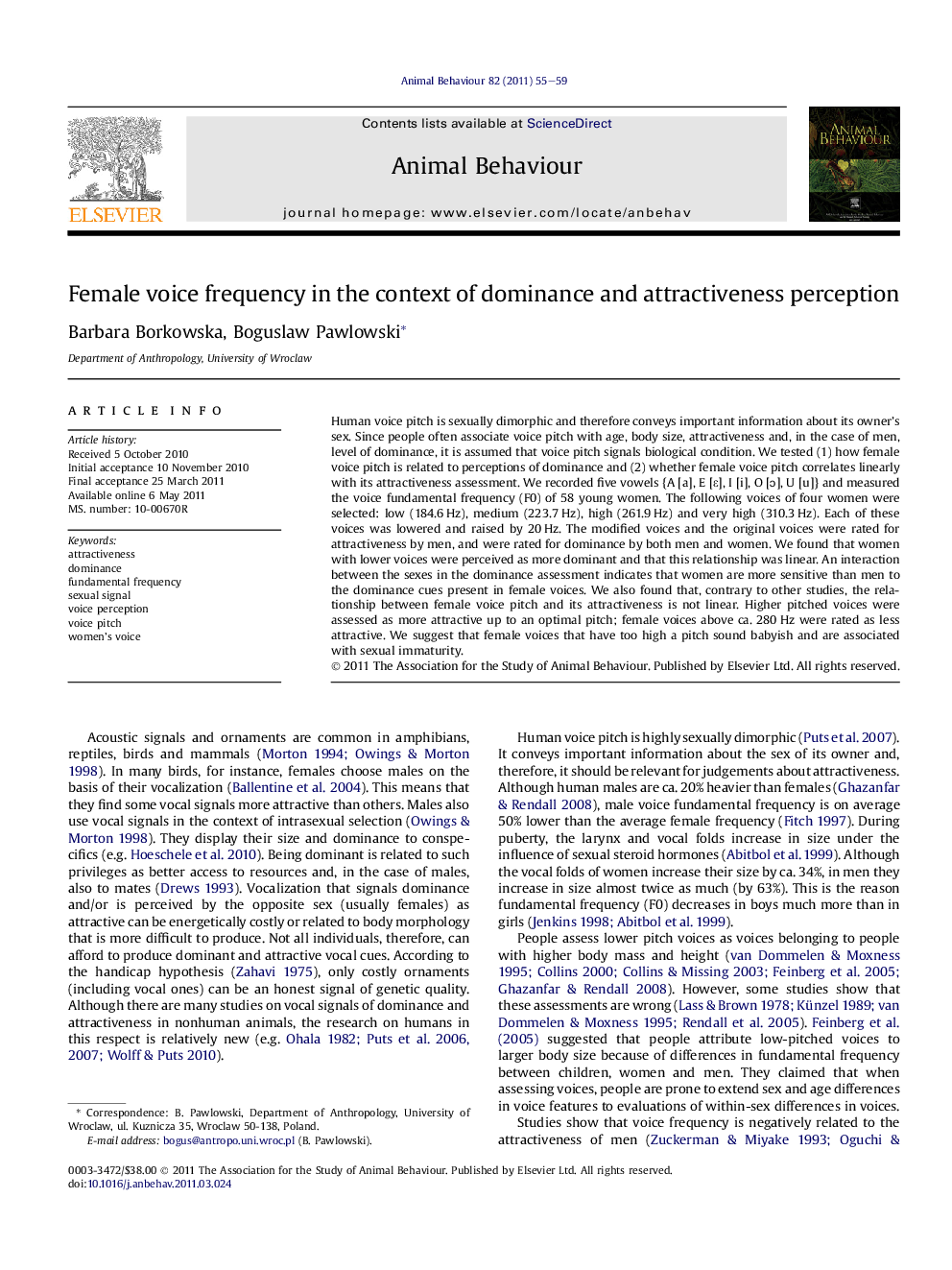| Article ID | Journal | Published Year | Pages | File Type |
|---|---|---|---|---|
| 2417025 | Animal Behaviour | 2011 | 5 Pages |
Human voice pitch is sexually dimorphic and therefore conveys important information about its owner’s sex. Since people often associate voice pitch with age, body size, attractiveness and, in the case of men, level of dominance, it is assumed that voice pitch signals biological condition. We tested (1) how female voice pitch is related to perceptions of dominance and (2) whether female voice pitch correlates linearly with its attractiveness assessment. We recorded five vowels {A [a], E [ɛ], I [i], O [ɔ], U [u]} and measured the voice fundamental frequency (F0) of 58 young women. The following voices of four women were selected: low (184.6 Hz), medium (223.7 Hz), high (261.9 Hz) and very high (310.3 Hz). Each of these voices was lowered and raised by 20 Hz. The modified voices and the original voices were rated for attractiveness by men, and were rated for dominance by both men and women. We found that women with lower voices were perceived as more dominant and that this relationship was linear. An interaction between the sexes in the dominance assessment indicates that women are more sensitive than men to the dominance cues present in female voices. We also found that, contrary to other studies, the relationship between female voice pitch and its attractiveness is not linear. Higher pitched voices were assessed as more attractive up to an optimal pitch; female voices above ca. 280 Hz were rated as less attractive. We suggest that female voices that have too high a pitch sound babyish and are associated with sexual immaturity.
